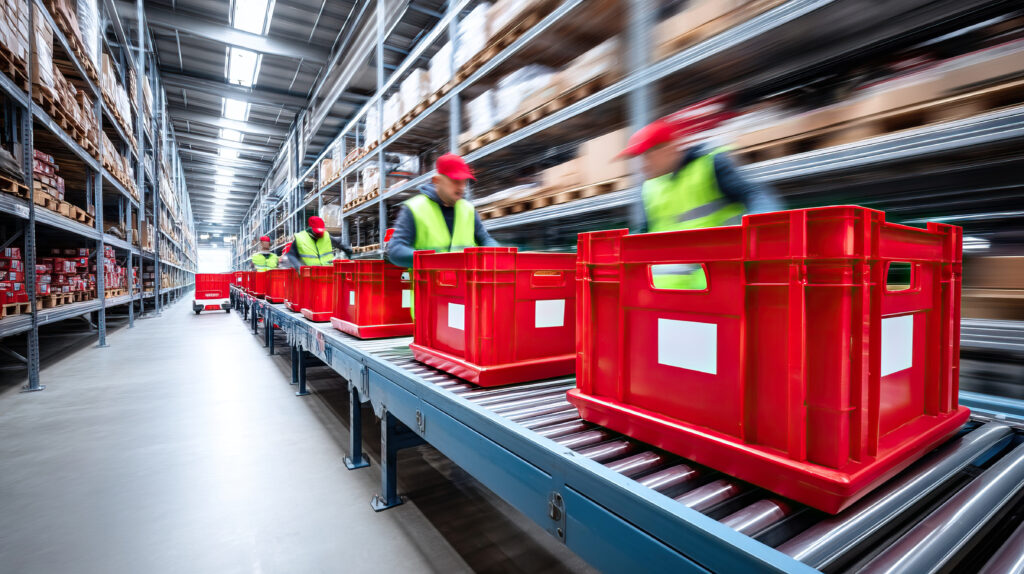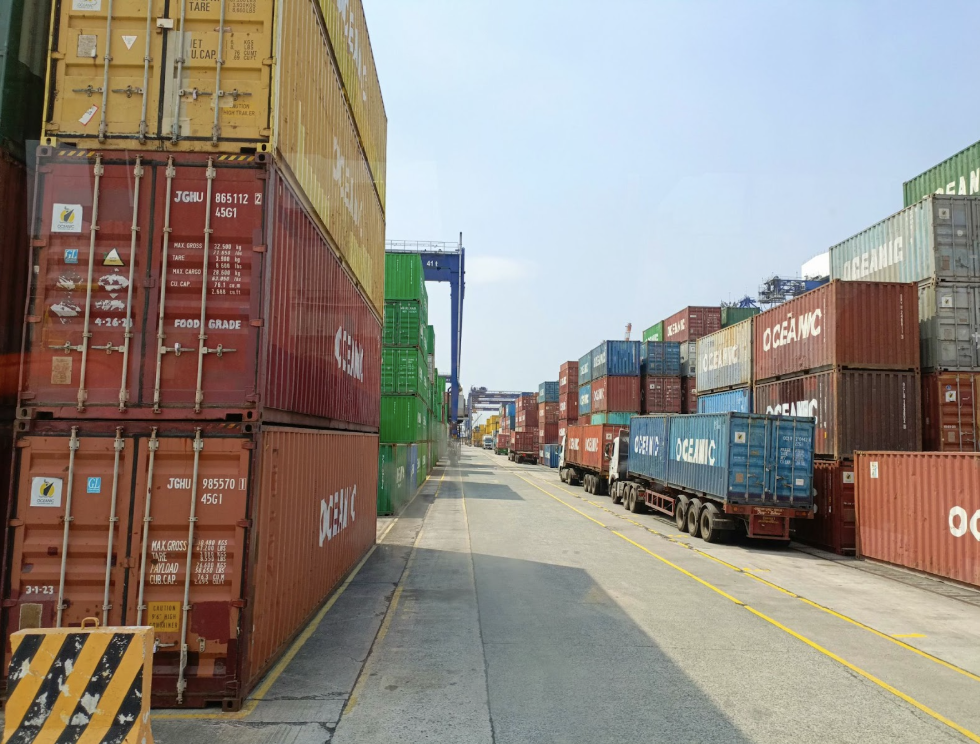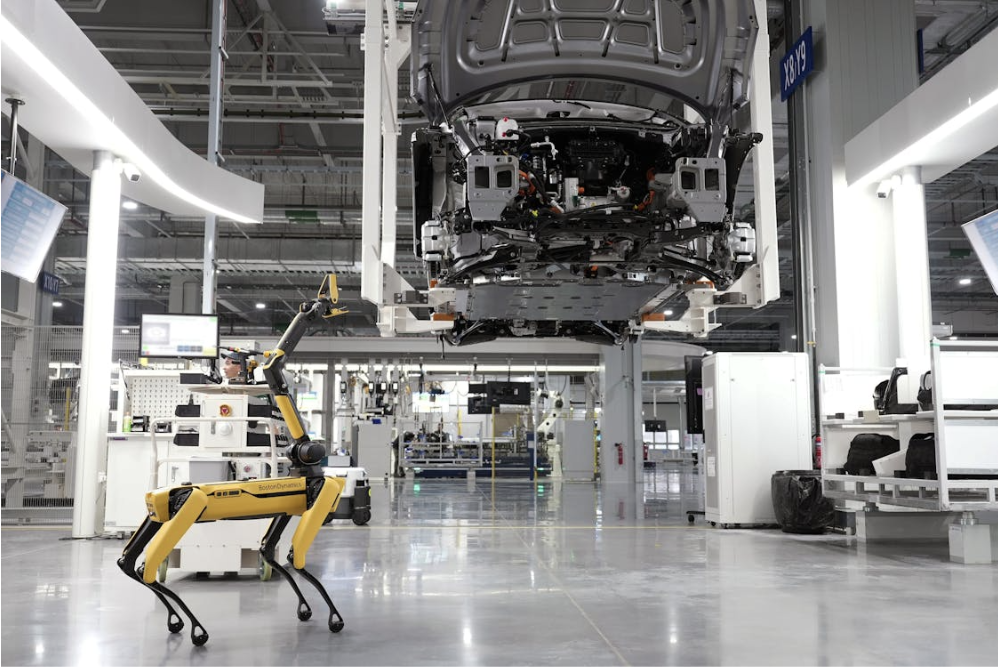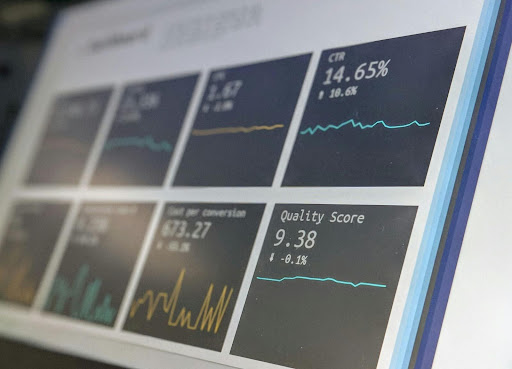Articles
Knowledge Center

Will AI Replace Freight Brokers? Understanding the Future of Brokerage in a Tech-Driven Supply Chain
As artificial intelligence (AI), automation, and machine learning advance across the supply chain, one question has moved to the forefront of logistics conversations: Will AI replace freight brokers? The short answer: Total replacement is unlikely, but transformation is inevitable. AI is already reshaping how brokers quote freight, match loads, communicate with carriers, and manage data. […]
Read More
The Highest-Paying Logistics and Supply Chain Jobs for 2026
As companies prepare for another year of supply chain complexity—including unpredictable freight markets, geopolitical risk, and rapid automation—demand for skilled logistics and supply chain professionals is set to surge in 2026. Organizations across tech, manufacturing, energy, biotech, and defense are paying top dollar to secure leaders who can build resilient, efficient, data-driven supply chains. A […]
Read More
What is FIFO? First In, First Out: Benefits and How to Calculate
FIFO stands for “first in, first out.” It is an inventory accounting method and stock rotation strategy. Businesses use it to sell or use the oldest inventory first. If you are a business owner, FIFO is especially useful for managing inventory efficiently and ensuring accurate financial reporting. The FIFO method is used for accounting purposes, […]
Read More
3PL vs. 4PL vs. 5PL: Their Key Differences
Growing global demand and rising customer expectations have pushed many businesses to rethink how they manage logistics. Instead of handling everything in-house, outsourced logistics services have become a practical and scalable choice, especially for companies aiming to streamline their company’s operations and boost supply chain efficiency. Understanding the difference between 3PL vs 4PL vs 5PL […]
Read More
Just in Case (JIC) Manufacturing: What It Is, Benefits, and Drawbacks
JIC manufacturing focuses on keeping extra stock to prepare for unexpected changes in customer demand or supplier delays. This inventory strategy aims to avoid production delays and ensure smooth manufacturing processes by holding more raw materials and finished goods than usual. Companies rely on just-in-case inventory to protect against supply chain disruptions and maintain supply […]
Read More
Order Batching: What It Is, Common Methods, and Benefits
Order picking eats up more than half of labor time in most warehouse operations. Ignoring this drains productivity, inflates labor costs, and frustrates teams trying to meet rising customer expectations. Acting on that inefficiency matters. Order batching solves this by grouping orders in such a way that reduces movement, improves the picking process, and helps […]
Read More
Certificate of Analysis (COA): What It Is, Key Elements, and Why They Matter
Goods move fast in today’s global supply chain. But speed means nothing without quality assurance. In the complex world of supply chains and regulatory compliance, every handoff, from supplier to warehouse, then to customers, carries a risk: mislabeled, contaminated, or substandard products slipping through. A certificate of analysis plays a key role in stopping that. […]
Read More
5PL: Understanding It, History, and Key Functions
5PL refers to a logistics model built around full digital integration and strategic control. It supports businesses with complex logistics needs by managing the entire logistics function through advanced tools and connected platforms.
Read More
Top 10 Bus Companies in Europe 2025: Charter Hire & Ticket Operators Compared
Bus travel remains one of the most convenient and affordable ways to get around, whether you’re on a group tour across Europe or a budget trip through the United States. From charter bus companies for corporate events to low-cost tickets for intercity routes – we’ll guide you on how to choose the right option. Best […]
Read More
3PL vs 4PL: Their Key Differences and Benefits
Modern supply chain operations are no longer simple or linear. Companies now manage global sourcing, multiple vendors, shifting customer demands, and fast-changing technologies. Handling all this with outdated systems or siloed operations can lead to delays, wasted resources, and missed opportunities. Implementing an agile supply chain approach can help businesses adapt more quickly and efficiently. […]
Read More
Demand Planning vs Forecasting: Their Key Differences
Anticipating future customer demand in logistics is no longer optional. Companies that fail to plan risk excess inventory, late deliveries, and lost revenue. Accuracy in forecasting plays a critical role in ensuring the supply chain operates smoothly. Accurate demand forecasts are essential for optimizing inventory, reducing stock-outs, and improving overall supply chain efficiency. Understanding the […]
Read More
Everything Businesses Need to Know About Freight Consolidation: Definition, Challenges, and Benefits
Paying more for half-empty trucks? That’s a clear signal something’s off in the shipping process. Many businesses waste money and resources without realizing that smarter logistics can change everything. Freight consolidation is the game-changer here. It’s the practice of combining multiple small shipments from various shippers into one shipment—a more efficient and cost-effective approach to […]
Read More
Chemical Supply Chain: What It Is, Challenges, and Management Strategies
Every product in the chemical industry depends on a reliable chemical supply chain. Chemical supply chains are often complex supply chains, involving intricate networks of suppliers, manufacturers, and logistics partners that must work together seamlessly. From raw materials to chemical products, each step requires careful coordination to keep production steady and safe. A chemical supply […]
Read More
Warehouse Robotics: What It Is, Types, and How It Works
Warehouse robotics is changing how modern supply chains operate. Businesses today face rising demand, tighter delivery windows, and labor shortages. To keep up, they are investing in automation technology that transforms how warehouse tasks get done. In many warehouse environments, robots now handle everything from picking to transporting goods. These robotic systems boost warehouse productivity […]
Read More
IoT Manufacturing: Components, Benefits, and Challenges
Factories are no longer just metal, noise, and manpower. Smart machines now collect data, talk to each other, and help manufacturers make faster, better decisions. Welcome to the age of IoT manufacturing, where efficiency and insight come from connected technology. Across the manufacturing industry, companies use IoT devices and smart sensors to track machines, boost […]
Read More
Cloud-Based Warehouse Management Systems (WMS): What It Is, How It Works, and Benefits
Cloud-based warehouse management helps businesses improve inventory management, reduce errors, and gain real-time visibility across operations. Companies boost control, reduce costs, and adapt quickly to changes in the supply chain.
Read More
Carbon Neutral Shipping: What It Is, How It Works, and Benefits
Growing demand for greener logistics has made carbon-neutral shipping a key strategy for reducing carbon emissions and shrinking the carbon footprint of global trade. By adopting neutral shipping, companies help lower global greenhouse gas emissions, meet environmental goals, and stay relevant in a fast-changing market.
Read More
Digital Twins in Logistics: What They Are, How They Work, and Benefits
Digital twins in logistics turn live data into smart decisions. These models improve planning, boost speed, and raise accuracy across modern supply chain management strategies.
Read More
Supply Chain Predictive Analytics: What It Is, Key Components, and Benefits
Supply chain predictive analytics helps companies navigate uncertainty, reduce waste, and make better decisions using real-time data and intelligent forecasting. By applying predictive analytics in supply, teams improve supply chain management, cut delays, and align with future trends.
Read More
Predictive Analytics in Inventory Management: Definition, How It Works, and Benefits
As markets shift quickly and supply chains grow more complex, predictive analytics inventory management has become a key strategy for staying ahead. It uses historical data, algorithms, and statistical models to improve how businesses handle stock, supply chain operations, and customer demand Instead of reacting to problems after they happen, companies can now use predictive […]
Read More